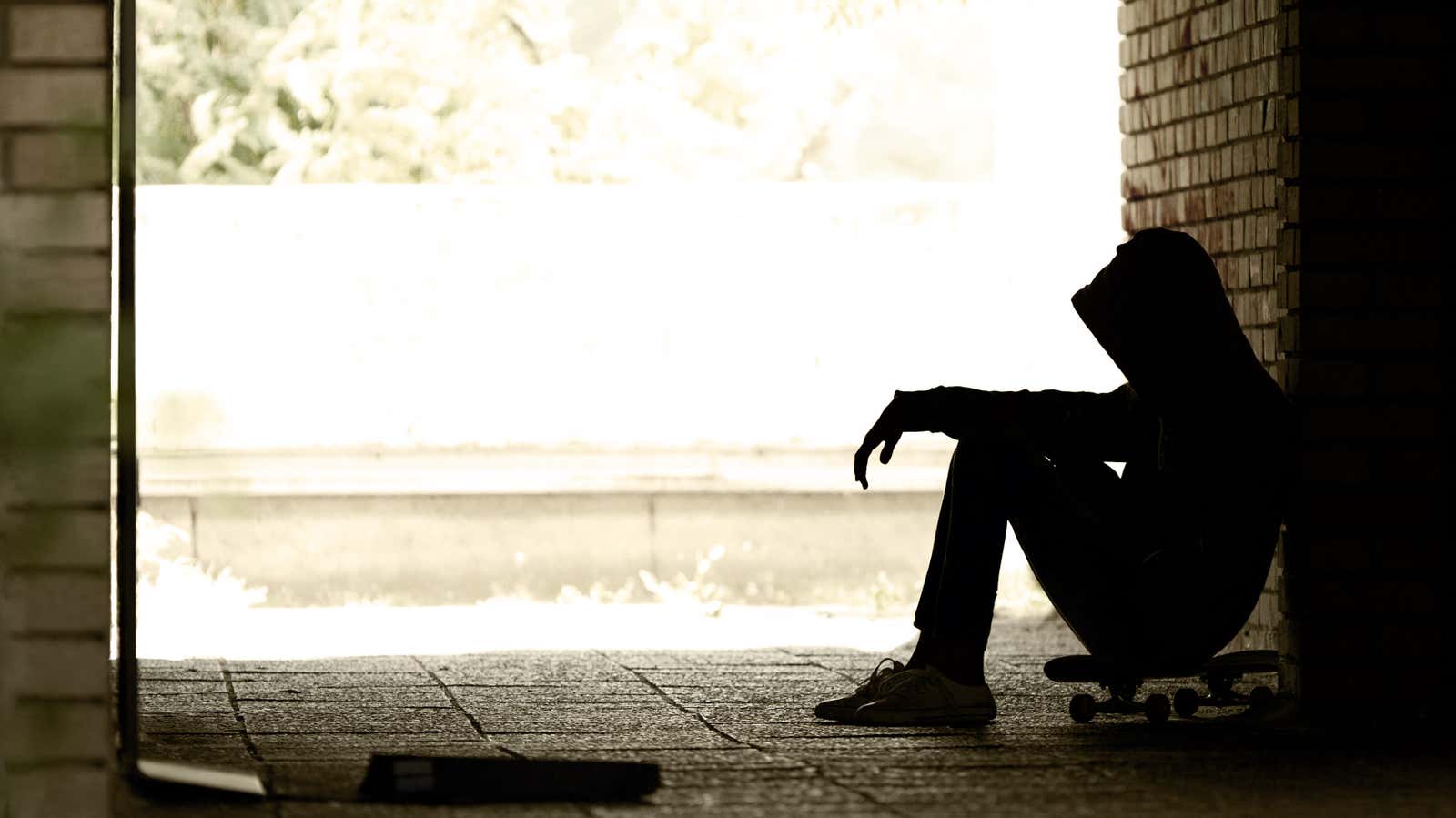How to React If Your Child Uses Drugs

When it comes to our children and drugs, we tend to focus on prevention – and rightly so. We think about how to be good role models when it comes to substance use; we talk to them early and often about the dangers of drugs, peer pressure, and hanging out with the wrong crowd. But what about when we do it all and they still use it?
Even if they have all the information they need – even if they know better – adolescents sometimes make the wrong choice. And when parents find out about it, they are likely to be shocked, scared, angry, or all of the above. Psychologist and educator Emma Maynard writes for The Conversation that it makes us lose our peace of mind when we need it most:
Experts on drug use among adolescents tell us that it is about making an informed choice. They advise us to recognize that as parents we are unlikely to discourage our teenage children from doing what they choose, and therefore our best approach is to ensure that they have the correct information and that they can openly discuss issues with us. In this way, we can help reduce harm by making sure adolescents are aware of the risks and what to do if they need help.
While this is really great advice, many parents find it difficult to follow. My current research looks at the experiences of parents whose children use drugs. They value the way practitioners can talk to their adolescents and understand the value of the recommended harm reduction approach.
Regardless, most of the parents I spoke to said their gut reaction was to react differently: more zero tolerance than harm reduction. They tend to ground their children and give up pocket money. Stories are rife with reports of squabbling and heightened sanctions in an endless cycle of panic and rebellion.
In other words, it is much easier said than done when you think your child is using drugs to remain calm and rational. We want to lock them up to keep them safe. But protecting your relationship with them should be a top priority so that you can help in the most constructive way.
Of course, you will need real professionals in your corner to help you navigate all this. But there are things you can start to do with your child as soon as you find yourself using drugs to maintain strong bond and open communication as you move forward.
Don’t react right away
If you know (or suspect) that your teen is using drugs, the first thing to do is take a deep breath. And then another one. If you have a partner, talk to him before approaching the child. The Partnership for Drug-Free Children emphasizes the importance of parents being on the same page and acting as a united front, even if you may not fully agree with your position.
Gather any evidence (there is a list of common hideouts here ), formulate your goals and objectives , plan yourinitial conversation, and prepare for what can be a very negative reaction.
Speak when you are calm
Maynard says that expecting yourself to be always calm is unnecessary pressure that you don’t need. “But timing can help,” she writes . “All the parents I spoke to said the same thing: speak when you are calm, and they are calm. Then you can speak and listen well. “
If the situation starts to heat up and heat up, press “pause” in the conversation and return to it when everyone has cooled down. Try to always proceed from love. Or, as researcher Molly Bobek of the Center for Drug Addiction and Substance Abuse suggests, came from an “open-minded curiosity,” which emphasizes the need to ask questions while maintaining an open mind:
The relationship with your teen is the most important thing to take care of and not overlooked when you are concerned about substance use. Effective long-term prevention or cessation of adolescent substance use is impossible without strong and nurturing family relationships.
Really listen
If there ever is time to talk less and listen more, then this is it, no matter how tempting it is to bombard your teen with lectures full of information. To figure out the root cause of drug use – and change the pattern – you have to listen to the “why”. They may succumb to social pressures, push boundaries, or crave physical sensations.
Once you determine the motivation for using it, you can start looking for solutions or alternatives.
Work on your connection
When something as massive and intimidating as drug use comes into your life, it’s hard to think or talk about anything else. But the problem is unlikely to be resolved overnight, and Maynard says it’s okay – even encouraged – to rest from time to time and then reconnect:
Have fun. If that means you are briefly avoiding the topic, do so. Do something different and lighthearted. Talk about anything other than drugs and any side effects, such as bad behavior or school problems. Having fun together is one of the best things we can do to build resilience, especially when relationships get tense. It’s also one of the first things we don’t prioritize.
Bobek also suggests that parents believe they are working or doing well in their lives by asking themselves this question : “If we weren’t here to talk about younger drug use, what would we talk about”